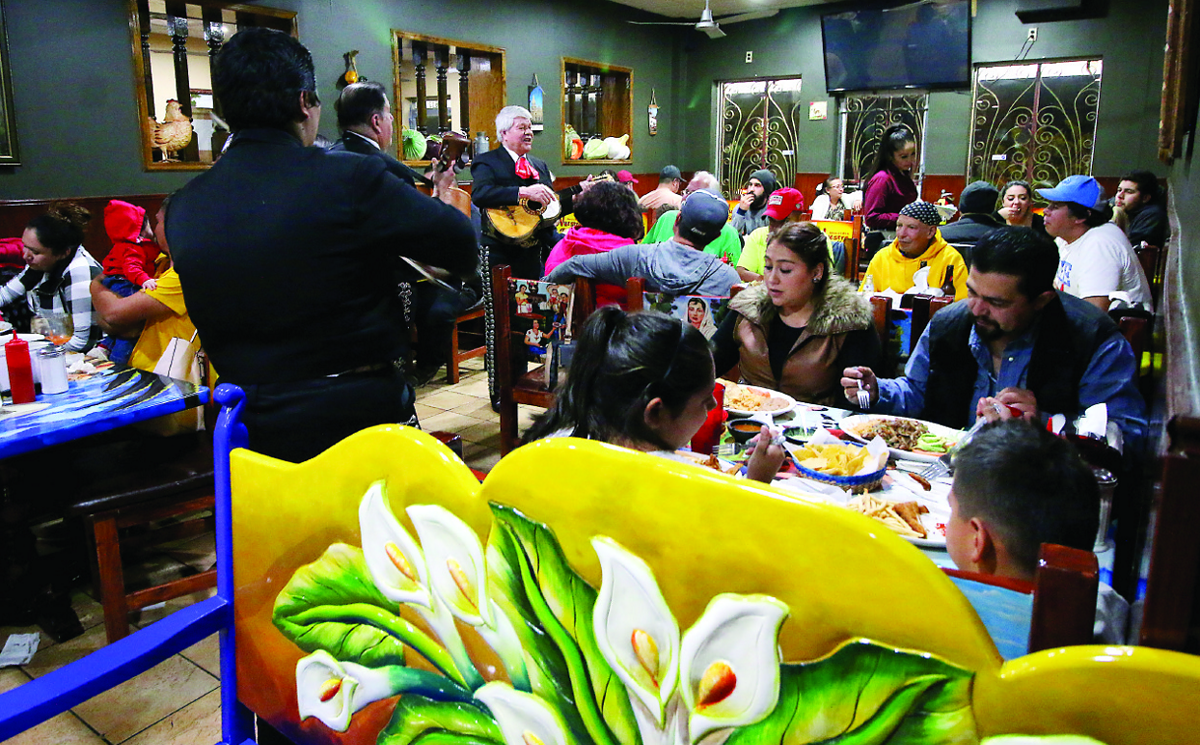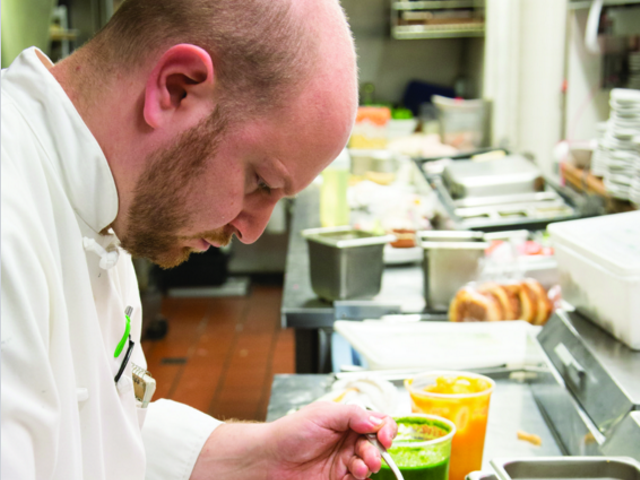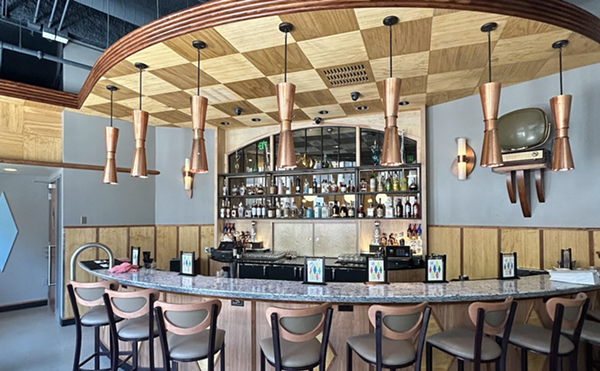When the temperatures start to plummet, nothing satisfies like a piping hot bowl of caldo de pollo. Or pozole with all the fixings. Or a creamy cup of tortilla soup. It's times like these that call for a trip to Southwest Detroit.
Indeed, you'll be in for a mashup of culinary traditions at Mexican restaurants in Detroit. You can indulge on immigrant-owned taquerias, the plethora of the Tex Mex-inspired eateries that have lined "La Bagley" for generations, and even fine dining experiences tucked into barrios that are, for the most part, overlooked by outsiders.
Aging staples like Mexican Village, Xochimilco Restaurant, or El Zocalo are reflective of the long-standing Mexican-American community that assimilated in Detroit nearly a century ago. They came here looking for a working-class city without the sting of racism experienced in other parts of the country. The cuisine symbolizes that transition into American culture, with native-friendly fare that includes deep-fried flautas, chimichangas, and botanas, served with refried beans and rice. While the food at places like these served to introduce Detroiters to Mexican cuisine decades ago, more newly arrived immigrant restaurateurs are increasingly branching out of the mold and urging their customers to try something that isn't necessarily buried in shredded iceberg lettuce.
Take Luis Garza, proprietor-chef of El Asador on Springwells, which opened its doors last year. Proving that he could give the area a high-end steakhouse experience while paying homage to his Mexican heritage, he offers signature steaks, seafood, and guacamole prepared fresh by the table. Entrées are lovingly prepared with guajillo, ancho, chipotle butter, or poblano cream sauce. And when you're in need of a classic comfort food, the tortilla soup, made with roasted tomatoes, guajillo, queso fresco, asadero, and a bit of cilantro, delivers. Though the place lacks a liquor license, Garza's concept has already established itself as a prime destination.
Garza is building on successes like that found at El Barzon, now a staple at Junction Street and Michigan Avenue, where diners can enjoy equally exquisite Mexican and Italian fare. Owner Norberto Garita is a native of the Mexican state of Puebla, arguably one of the star culinary regions in all of Mexico. His mole poblano is evidence of that. He perfectly blends chiles, tomatillo, anise, bread, banana, and chocolate for an almost dessert-like experience. Add to that the Italian offerings, which include house-made pasta and a variety of intriguing sauces to create dishes like pennette alla vodka, gnocchi with four cheeses, and risotto with porcini.
Elsewhere on Vernor, in the so-called Springwells Village, other spots like Nuestra Familia and El Nacimiento offer diners fare more akin to a traditional taqueria, with meats like tripa (intestines), cabeza (steamed beef head) and lengua (tongue), along with carne asada or al pastor. They both offer real treats that are especially therapeutic during long Michigan winters, such as caldo de pollo (a giant soup with huge cuts of bone-in chicken, hearty veggies, and a generous cob of corn) and pozole, a spicy red soup made with hominy and tripe and garnished with cabbage, radish, onion, and cilantro (traditionally made in Mexican restaurants on the weekends, it can make hangovers evaporate like morning dew in Acapulco sunshine).
And it doesn't stop with the cuisine. Nuestra Familia's interior has a summer-in-January feel, with bright decor that's reminiscent of any number of spots one might find on the balmy coast of Baja California, no matter the gloomy temperature at home. El Nacimiento also has a kind of spring break vibe, as does the bar menu, with a variety of micheladas (beer with a spicy Clamato juice, in a salt-rimmed mug) and margaritas, including what's sometimes referred to as a "beerita," with a Coronita bottle poured into a massive margarita.
These restaurants represent a new age for Mexican cuisine as well as a new chapter for the community. These spots, which have all opened within the last three decades, are part of a wave of immigrant-owned businesses that have helped Southwest Detroit thrive, while other parts of the city have languished. While the older establishments laid the foundation for a strong Latino neighborhood, these newer places reinforce the area as a powerhouse, instrumental in the revival of Detroit.
And that's enough to make us feel warm all year long.






